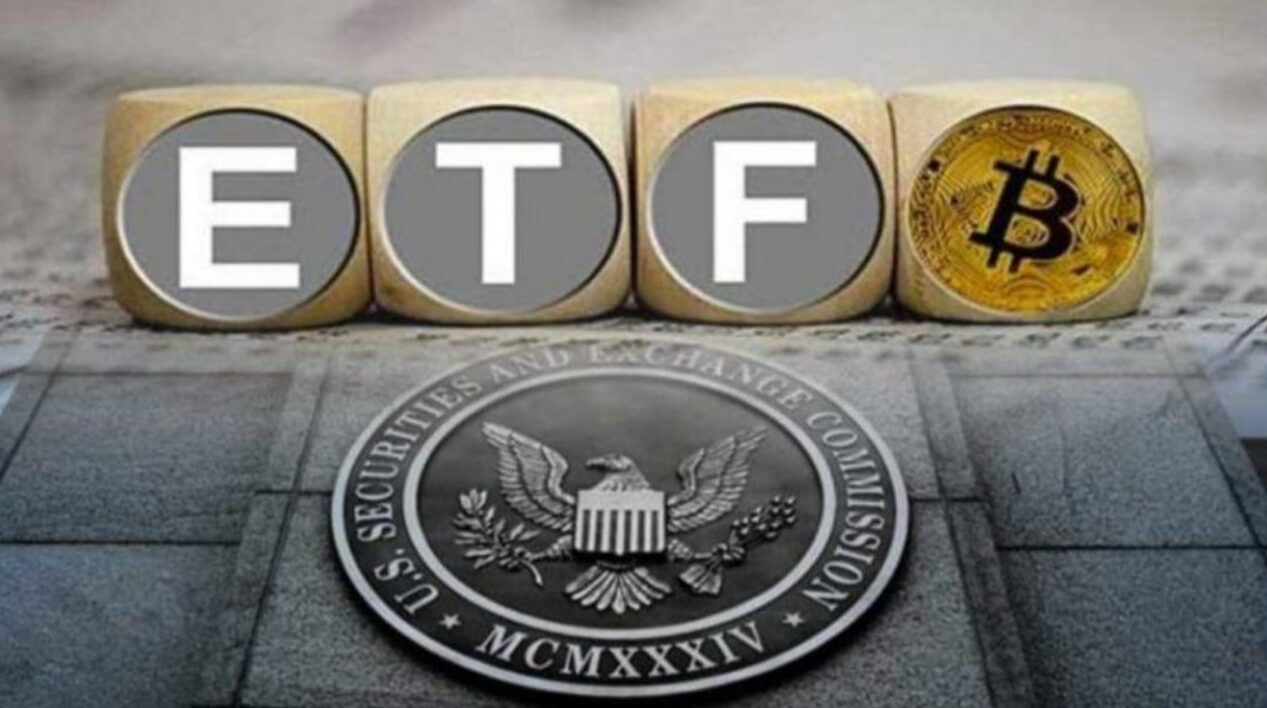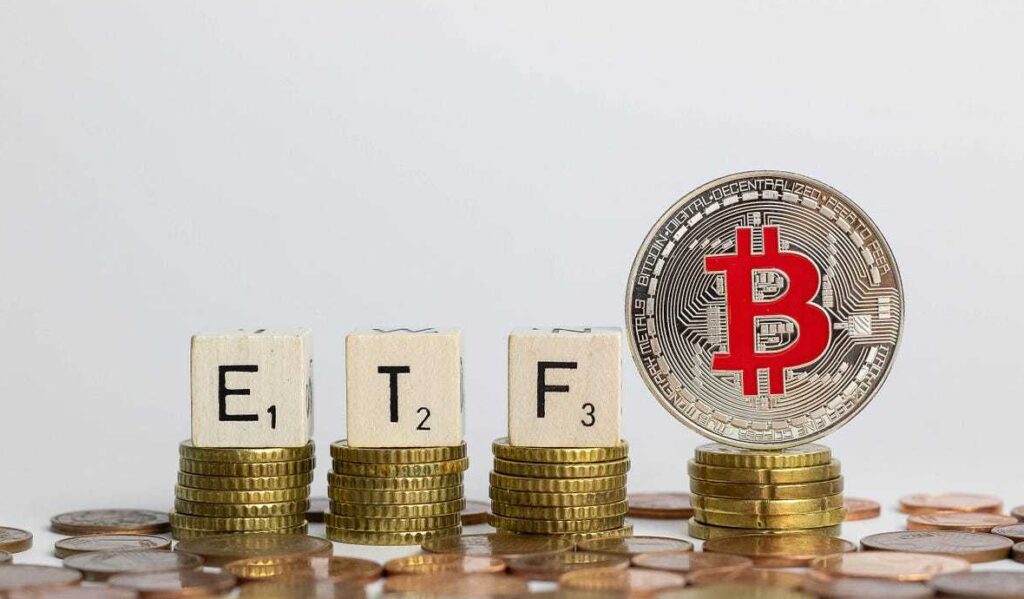Once a sign of rising institutional confidence in digital assets, Bitcoin Exchange-Traded Funds (ETFs) are seeing a notable decline in demand. This reversal results from geopolitical uncertainty and economic uncertainty weighing strongly on investor attitude around world markets. Once driving these investment vehicles to historic inflow levels, the excitement is fast waning as macro risk factors and political shocks change how institutional and retail investors see crypto exposure.
A frenzy of excitement about the approval of several spot Bitcoin ETFs by the U.S. Securities and Exchange Commission defined early part of 2024. Prominent products released by industry titans such BlackRock, Fidelity, and Ark Invest let regular investors access Bitcoin without personally owning the asset. These ETFs attracted billions in inflows for months and were credited with driving the price of Bitcoin above $70,000. But as policy uncertainty and world turmoil change investor objectives, that upward momentum has lately faded.
Geopolitics Dampens Bitcoin ETF Demand
One big restraint on Bitcoin ETF demand is geopolitical concerns. Rising instability is driving risk-off behavior in financial markets from continuous strife in Eastern Europe to fresh friction in the Middle East. Conventional havens like the U.S. currency, Treasury bonds, and gold are attracting investors looking for protection. Though Bitcoin’s long-standing image as “digital gold” is well-known, its real performance in recent geopolitical events calls questions on its dependability as a hedge.

Weekly inflows into Bitcoin ETFs have declined by more than 60% from their March peak, according recent statistics from Coin Shares. Some funds have even suffered net outflows; among those showing the most extreme withdrawals are Grayscale’s GBTC and Fidelity’s FBTC. This change exposes growing unease among investors, especially those seeking cover instead of speculative returns in uncertain conditions. Although Bitcoin might still be seen as a revolutionary asset, its acceptance through controlled investment vehicles like ETFs has exposed it to the same macroeconomic forces that drive conventional equities. Risk appetite keeps shrinking as volatility rises, particularly amid military escalations and political events.
Institutional Doubts Weigh on Bitcoin ETFs
Early hope was built mostly on institutional involvement in Bitcoin ETFs. These tools were accepted by major asset managers, pension funds, and hedge funds as a means of diversifying portfolios with digital assets while remaining inside regulatory bounds. But risk management has taken front stage while central banks keep a defensive monetary posture and interest rates remain high.
Over 70% of institutional fund managers listed “geopolitical risk” as a top issue in a recent JPMorgan poll. Many have reallocated money towards less-risk assets in response to the danger of unanticipated policy decisions or world hostilities. Due to their volatility and rather short history, Bitcoin ETFs are progressively perceived as less appealing than bonds, money market funds, and dividend-yielding equities. This change transcends American markets. Regulatory uncertainty has slowed enthusiasm for crypto-related ETFs in Europe, where MiCA (Markets in Crypto Assets Regulation) is being progressively adopted. Until more is known about how digital assets will be taxed, controlled, and reported globally, investment companies functioning across several jurisdictions are walking carefully.
Retail Interest in Bitcoin ETFs Fades
Originally drawn to Bitcoin ETFs for their simplicity and accessibility, retail investors are also pulling back. Non-professional investors are choosing more consistent, short-term possibilities when economic conditions tighten—due to inflation, declining real wages, and tightening credit. Declining trading volumes across crypto-related instruments have been noted on platforms like Robinhood and Charles Schwab, which made Bitcoin ETFs easily tradable for the mass.
Furthermore setting in is retail tiredness. Newer players into the crypto scene have had a reality check following the initial thrill of ETF introductions. Participation is being discouraged by Bitcoin’s volatility. Macroeconomic influence complexity. And slow returns in past months. Millennial and Gen Z investors. Who have begun to gravitate towards trends in AI stocks or other high-growth industries, especially show this loss in excitement.
Bitcoin’s Correlation Undermines ETF Appeal
The growing visibility of Bitcoin with conventional risk assets—especially tech stocks—has another element weighing on ETF demand. Bitcoin generally moves in line with the Nasdaq and other growth-oriented indices. Analysts at Arcane Research and Kaiko have noted. Especially in times of economic downturn or geopolitical anxiety. This synchrony reduces the diversification value of the asset.
Rather than serving as a counterweight, Bitcoin is now considered by many institutional investors as part of the same macro environment sensitive to rate increases, changes in fiscal policy, and world crises. Consequently. The justification for keeping Bitcoin ETFs as a hedge gets weaker. Which fuels more outflows and reduces demand.
Regulatory Uncertainty Clouds Bitcoin ETF Future
Though there has been some improvement. The global legal scene for Bitcoin ETFs remains patchy. While numerous spot ETFs have been approved by the SEC. Other countries remain dubious. For example, Canada was an early adopter but has since changed its position; areas like Asia-Pacific are split on their regulatory posture.
Moreover, the political environment of the United States is aggravating investment uncertainty. The direction of crypto control could change significantly depending on which party runs Congress and the White House. Given a big election just around. Though previous President Donald Trump has made hints about supporting cryptocurrencies. The larger political establishment is still split. Long-term investments to ETF products are discouraged by the possibility of more scrutiny or stricter rules in 2025 and beyond.
Bitcoin ETF Demand Dip Seen as Correction
Although short-term headwinds are clearly powerful, other analysts contend that the drop in Bitcoin ETF demand represents a natural correction. After an initial spike motivated by media coverage and anticipation, normalising was predicted. Companies such as Fidelity Digital Assets and Bernstein advise ETF products need time to develop and fit into more general investing strategies.

They also draw attention to how the supply dynamics of Bitcoin—particularly the approaching halving event—may spark interest once macro conditions calm. Though still under development, Bitcoin ETFs have great potential to be included into endowments. Insurance reserves. And long-term retirement portfolios.
Final thoughts
The steep drop in Bitcoin ETF demand results from changing investor psychology, macroeconomic stress, and geopolitical concern. It remains to be seen if this is a brief retreat or a symptom of more underlying structural problems. Digital asset ETFs are not. However. Immune to conventional market forces—that is apparent.
As Bitcoin travels from speculative asset to institutional-grade investment vehicle, its performance during times of global uncertainty will be under closer examination than ever. Though not necessarily negative, the path ahead for Bitcoin ETFs is probably going to be erratic; much will rely on how soon investor trust can be rebuilt and how worldwide events turn out.


